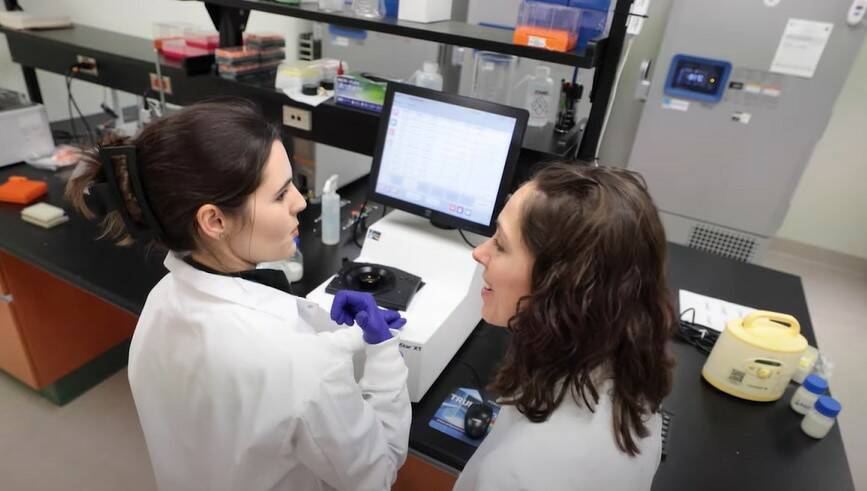Local doc honoured
Advertisement
Read this article for free:
or
Already have an account? Log in here »
To continue reading, please subscribe:
Monthly Digital Subscription
$19 $0 for the first 4 weeks*
- Enjoy unlimited reading on winnipegfreepress.com
- Read the E-Edition, our digital replica newspaper
- Access News Break, our award-winning app
- Play interactive puzzles
*No charge for 4 weeks then billed as $19 every four weeks (new subscribers and qualified returning subscribers only). Cancel anytime.
Read unlimited articles for free today:
or
Already have an account? Log in here »
Dr. Meghan Azad, a respected researcher and professor at the University of Manitoba’s Max Rady College of Medicine, was honoured Thursday with the Canada Gairdner Momentum Award for her groundbreaking work in infant nutrition and health, particularly focused on breastfeeding research.
“It feels amazing. I think it’s a recognition not just for me, but for all the many people I work with on this research,” Azad says. “What I do is very collaborative, and so I work with many people in Winnipeg, all over Canada and the world, and it’s really exciting to all of us.”
The award, given by the Gairdner Foundation, honours outstanding biomedical and global health research.

SUPPLIED
Dr. Meghan Azad’s (right) seen in a research lab at UoM with Kelsey Fehr (left). Her research focuses on the benefits of breastfeeding.
Through her research, Azad’s team has shown that longer breastfeeding reduces asthma risk and promotes healthier body composition. Their findings have influenced policy-making globally, engaging organizations such as the World Health Organization and UNICEF.
Azad’s interest in breastfeeding started about 13 years ago when she was researching the infant gut microbiome, the bacteria that live in our intestines.
“One of the very loud and clear signals we found was that the important things shaping the microbiome of babies were how they were born, by C-section or vaginally, and how they were fed, formula or breast milk,” she says.
Azad’s first attempt to investigate the connection faced harsh criticism.
“The first grant I wrote on breast milk got rejected and slammed pretty bad by the reviewers. And I remember one of them wrote, ‘There’s nothing magical about breast milk. This is useless,’” she says. “But I thought, no, I think there is something important here.”
A few years later, Azad established her own lab to understand why breastfeeding is crucial to the microbiome and infant health. Her curiosity led to the creation of the Manitoba Interdisciplinary Lactation Centre and THRIVE Discovery Lab at the U of M.
“There is evidence that breastfed babies are healthier, they are less likely to get infections and asthma and obesity, but the mechanisms on why weren’t always clear,” she says. “By digging deeper and understanding how breastfeeding works, we can develop better policies and alternatives for babies who can’t breastfeed.”
Azad says she co-founded the lactation centre to support mothers and babies, aiming to bridge the gap between research and practice.

SUPPLIED
Dr. Meghan Azad has been honoured for her research on infant nutrition.
“There’s not enough support for breastfeeding, and a lot of parents don’t know where to find help,” she says. “We’re working on ways to connect parents with specialists and resources they need.”
Azad says they are also addressing these issues locally and globally. She has projects in areas where stunting, wasting, malnutrition and infant mortality are significant problems.
“If we can understand better how breast milk is important, how it works, then I think we can have a major impact on child health worldwide,” she says.
tvera@academic.rrc.ca
History
Updated on Monday, April 15, 2024 1:55 PM CDT: Updates photo caption


